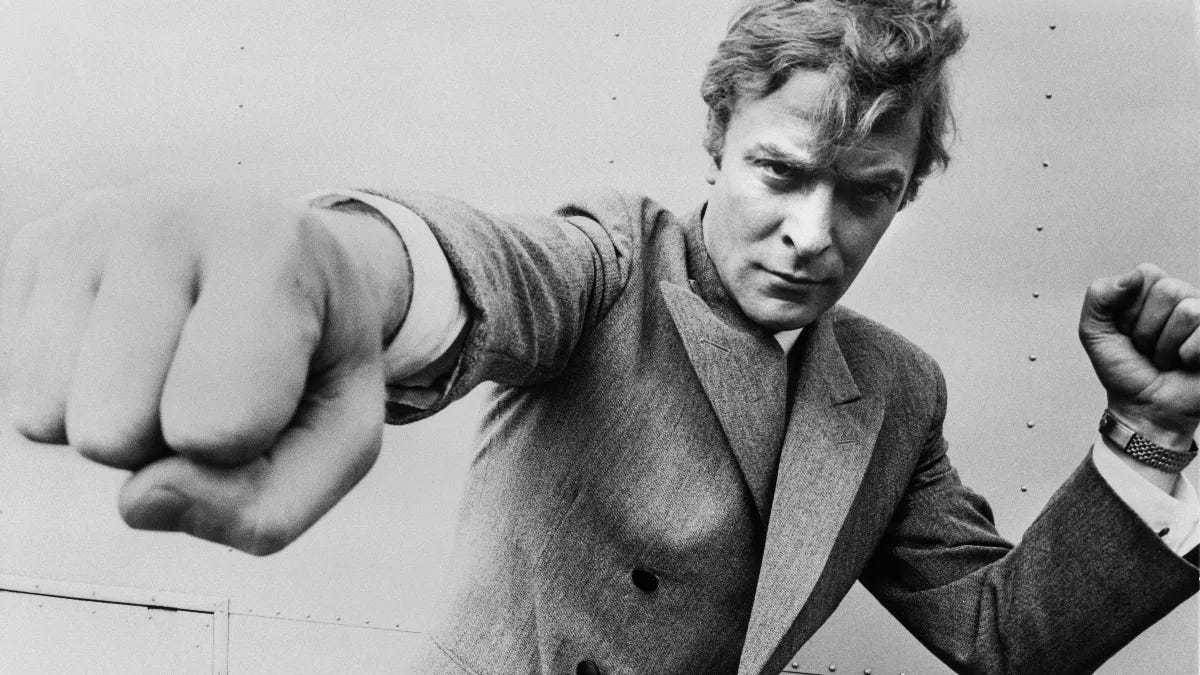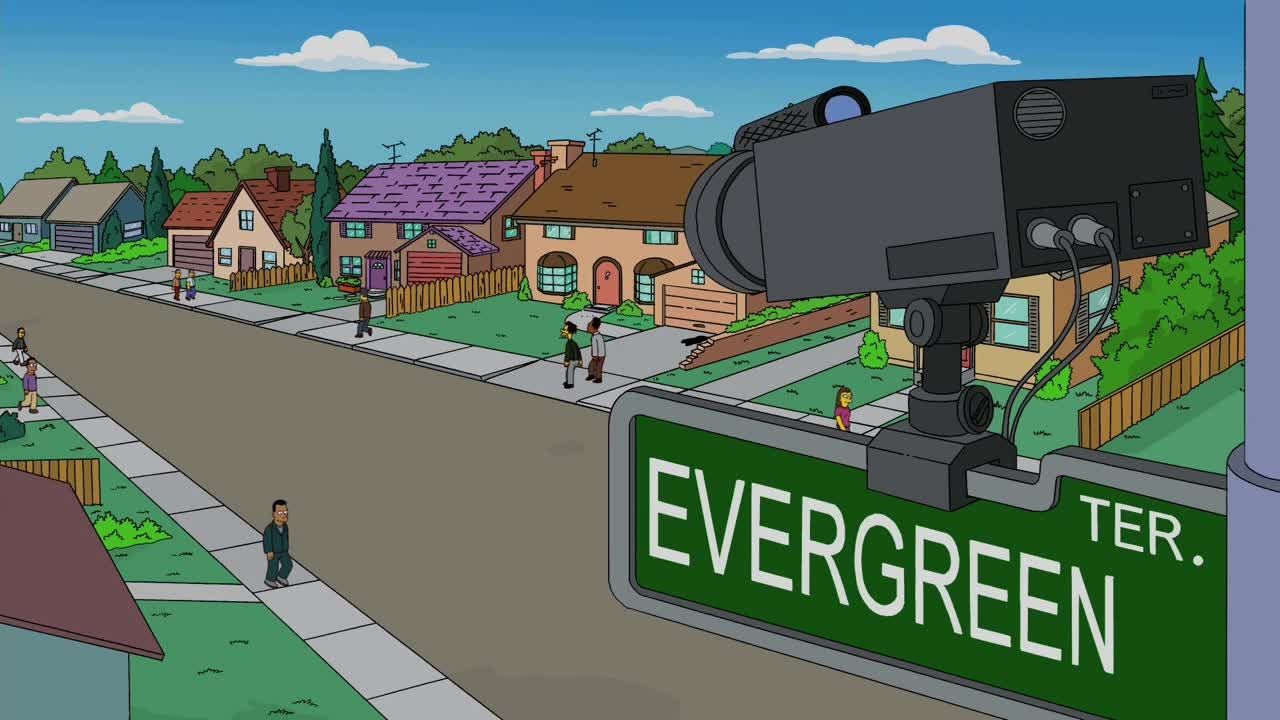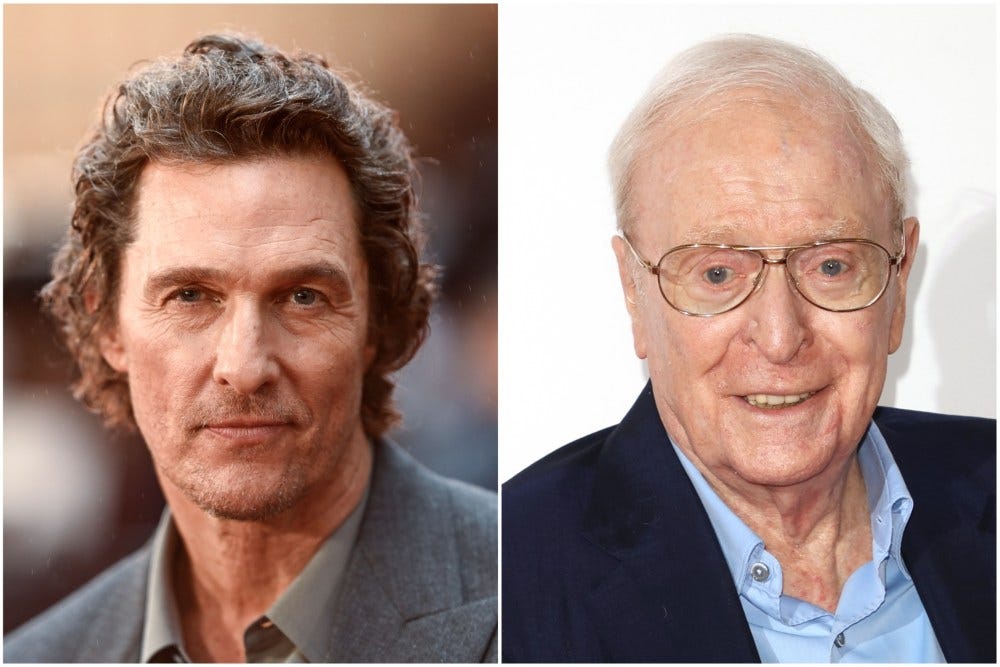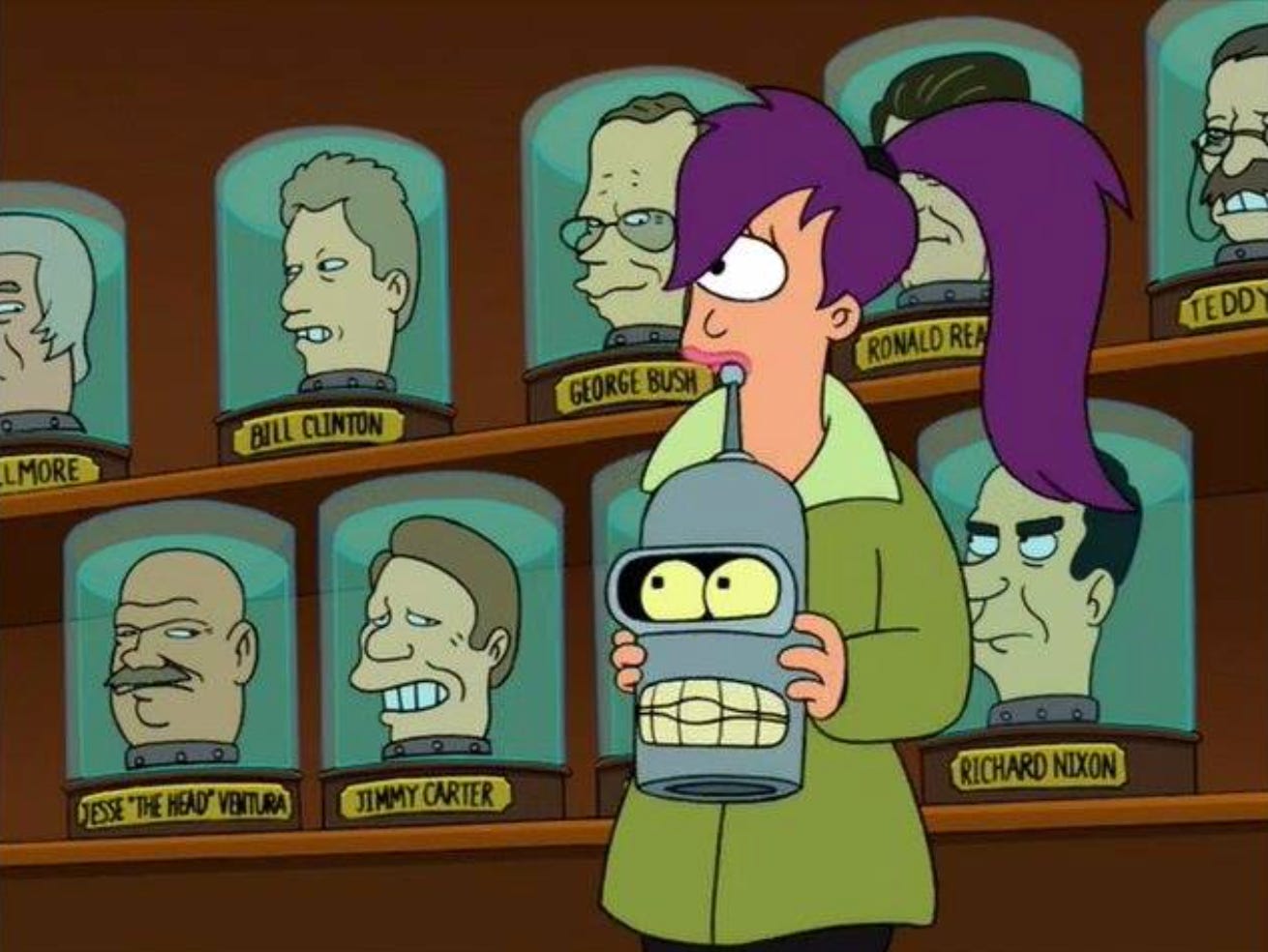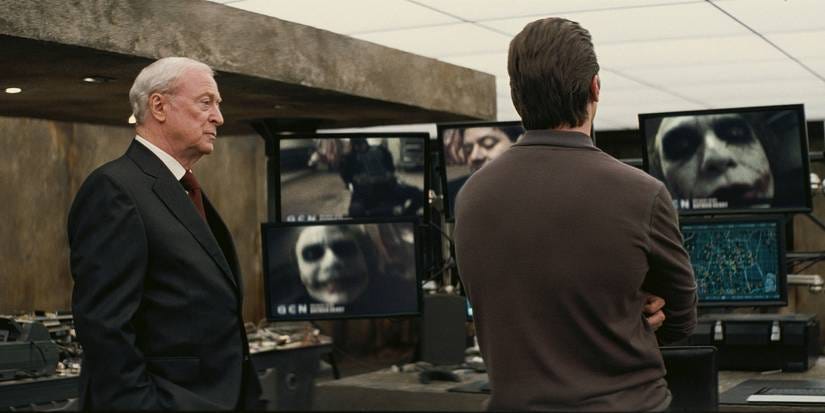Michael Caine’s Forever Deal with the $6.6 Billion Voice Cloning Company
At 92, Michael Caine just became immortal by licensing his iconic voice to $6.6 billion AI company ElevenLabs
Hi everyone —
We have a bunch of new subscribers! Welcome.
Eddie is your AI assistant video editor that helps you get to a rough cut. FAST.
You manage Eddie (and, quite frankly, the dozens and dozens of agents under-the-hood). Ask for themes. Co-create a story framework. Push for the first cut. Within minutes, maybe seconds.
We want to save you loads of time and money.
Resources which free you up so you can focus on the parts of storytelling you love, be more creative, create better videos, and, yes, make more money.
We’ve shipped a lot lately. Thank you to all those who send me feedback.
Onto today’s newsletter from Efosa. This was a fun one for me to read and a walk down memory lane.
Many years ago I worked on ideas/solutions to a world where one day people will be able to simply type a video that they want and it would generate, near instantly. (People thought I was crazy.) And this generated video would be indistinguishable from a real video. (It’s still surreal to me that we are here!) What happens to truth and video veracity? What are the societal implications?
Enjoy. Let us know what you think.
—Shamir
In 1987, Michael Caine flew to the Bahamas to film Jaws: The Revenge, a movie so catastrophically bad that it currently holds a 2% rating on Rotten Tomatoes.
He was paid $1 million for two weeks of work which he went on to use to buy his mother a house.
Years later, when asked about the film, Caine delivered one of the most honest lines in Hollywood history:
I have never seen the film, but by all accounts it was terrible. However, I have seen the house that it built, and it is terrific.
Now, at 92, Caine has just signed a deal with ElevenLabs, the $6.6 billion AI voice cloning company, licensing his iconic Cockney voice to their new “Iconic Voice Marketplace,” where brands, studios, and creators can rent it for eternity.
The Jaws quote was about a finite reward for finite work: a bad movie exchanged for a good house. This new deal is something else entirely.
It’s about extending an artist’s working life beyond the limits of biology.
A Top Merc
To understand why this deal is so on brand for Caine, you have to understand his entire career philosophy.
He’s never pretended to be an artist tortured by compromise. He’s always been gloriously, unashamedly pragmatic.
His late ‘70s and ‘80s filmography reads like a warning: The Swarm, Beyond the Poseidon Adventure, The Island, Jaws: The Revenge and in 1971, he literally played a character called “The Captain,” a brutal mercenary leader in The Last Valley.
The role was on the nose even then.
When other actors spoke about the craft and challenging roles, Caine talked about mortgages and school fees. He was working class, Cockney and clear-eyed about the business of show business.
He’s just signed the most Michael Caine deal imaginable: getting paid to do nothing, forever. No need to fly to the Bahamas. No need to remember lines.
He doesn’t even need to be alive.
The Ever, Evergreen Terrace (again)
Actors wanting to prolong their life with AI was inevitable. In fact we predicted this a month ago.
Prolonging the talent of long-running, high-value properties like The Simpsons is one of the greatest potential benefits of AI like Elevenlabs.
The Simpsons is a show that’s become commercially immortal, but voiced by humans who unfortunately are not.
It left a core question: What happens when Homer Simpson’s voice actor dies, but the IP is still worth hundreds of millions?
The hypothesis was simple: a property that valuable would never be allowed to die simply because its human components aged out. A primary commercial imperative for generative voice AI was always going to be preservation and, inevitably, resurrection.
Caine’s deal proves the hypothesis was correct, but the scale is far greater than anyone imagined.
We thought we had years to figure this out but it’s taken months.
Good Cop, Bad Cop
The ElevenLabs announcement was a calculated pincer movement, presenting two A-list partners in strategic roles: Matthew McConaughey and Michael Caine.
McConaughey is the good cop.
He’s framed as an innovator and partner, not a product. He’s an investor in ElevenLabs, collaborating with them since 2022. His AI voice isn’t for sale on the marketplace.
Instead he’s using it for his own project, translating his Lyrics of Livin’ newsletter into Spanish, delivered in his own cloned voice.
His PR frames him as “connecting with even more people” and “helping create a future,” positioning McConaughey as the forward-looking artist using a tool to extend his brand.
Whilst some critics are painting Caine as the bad cop or in polite terms, the pragmatist.
He’s not an investor. He’s talent. Licensing his voice directly to the marketplace for others to use. His deal acknowledges a simpler truth: at 92, he can’t physically perform every job, but his voice still has value.
By announcing these deals together, ElevenLabs is presenting two entirely different things. The public hears “McConaughey and Caine!” but the use cases are different.
One is about creative autonomy. The other, about artistic longevity and legacy.
A Present Futurama
The real story here is the “Iconic Voice Marketplace” itself. A live catalog of preserved celeb voices ready for licensing. It’s the Futurama Head Museum, but real.
In that show’s vision of the future, celebrity heads were preserved in jars, kept alive and conscious, still available for public interaction. It was satire about our cultural obsession with preserving fame.
But the joke revealed something true: we’ve always wanted our icons to stay with us.
Now that impulse has a business model.
Eleven Labs frames it as a “curated collection of history’s most celebrated voices” and these voices come with their trademarks. Quite literally.
It’s not Judy Garland. It’s Judy Garland™. Not Alan Turing. Alan Turing™. This is the legal reality of how cultural legacies are preserved and managed. Or simpler terms, the person becomes the IP.
Their rogues gallery breaks down into distinct categories that reveal what we’re actually trying to preserve:
The Living Architects
Michael Caine, Liza Minnelli, Art Garfunkel. These are the precedent-setters, actively choosing how their legacy continues.
The Golden Age
Judy Garland™, John Wayne™, Burt Reynolds™, Laurence Olivier™, Rock Hudson™. This is preservation of Classic Hollywood itself. You license one of these voices and you’re accessing an era, a style, a particular kind of glamour that doesn’t exist anymore.
The Intellectual Icons
Maya Angelou™, Richard Feynman™, Alan Turing™, J. Robert Oppenheimer™. These voices represent something beyond performance. They’re associated with wisdom, vision, and historical significance.
An audiobook narrated by Maya Angelou™ carries different weight than one narrated by a standard voice actor.
The Athletic Legends
Babe Ruth™, Ty Cobb™, Rocky Marciano™. Voices tied to American myth. Sport as character and as virtue, as a particular vision of what it meant to be great.
The voices of the dead can now participate in new contexts and tell new stories they never told.
Licensed Chaos
The “ethical” framework ElevenLabs has built is a response to a problem the tech itself created, though not necessarily by design.
The messaging has been consistent:
Caine: The company is “using innovation not to replace humanity, but to celebrate it.”
McConaughey: He’s “helping create a future” where we “connect through something as timeless as humanity itself, our voices.”
ElevenLabs: The marketplace “solves a key ethical challenge” by enabling “ethical sourcing and licensing” of voices.
This creates a complicated market dynamic:
Phase 1: A company develops powerful voice cloning tech and makes it accessible. The tech itself is neutral and can preserve legacies or create deepfakes.
Phase 2: Inevitable misuse cases emerge. Fake robocalls, unauthorized celebrity clones, deepfake scams. The tech’s dangers become undeniable.
Phase 3: The same company partners with rights-management agencies and estates to create a “clean” marketplace.
Phase 4: They offer a licensed, legally-protected alternative to the chaos their own tech helped create.
Is this cynical opportunism or responsible innovation? The honest answer is: probably both.
ElevenLabs didn’t invent voice cloning, but they have made it accessible and powerful.
Once that tech exists, you face a choice: let it remain entirely unregulated and chaotic, or try to create guardrails through licensing and legal frameworks.
The Iconic Voice Marketplace is the guardrail.
It’s an attempt to channel the tech toward legit, compensated use cases rather than unauthorized exploitation. Whether that’s a genuine ethical solution or just “legal indemnity with better marketing” depends largely on your perspective.
The tech exists. The misuse exists. And the marketplace exists as a response.
The question is whether this model is better than the alternative: a world where voices get cloned anyway, but artists never see a dollar.
The Voiceprint Future
There’s a path that doesn’t exist yet, and maybe needs to.
Imagine a system that works like YouTube’s Content ID, but for voices. Upload any audio content to a platform, and it automatically scans for voiceprints. If it detects Michael Caine’s voice, it either routes royalties to his estate automatically or flags the content for removal.
The creator either licenses it properly or doesn’t use it at all.
The tech isn’t exactly sci-fi either. Voiceprint recognition already exists for security and authentication. Apps like Shazam can identify a song in seconds from a few notes. So the question isn’t whether we can build a voice recognition system that monitors content at scale.
It’s whether we actually will.
This would require something the internet has consistently failed to build: a universal registry of who owns what, with enforceable claims and automated compensation.
It’s the same problem NFTs promised to solve for digital art and spectacularly failed to deliver on. The tech worked but the implementation was a circus of speculative mania and cartoon apes.
We might need to reignite that debate, minus the gold rush.
A voice registry wouldn’t be on a blockchain. It would be a boring, centralized, legally-backed database. Think ASCAP for voice where every registered voice gets a unique identifier. Every major platform: YouTube, TikTok, podcast hosts, audiobook services would need to sign up to the content scanner.
However the legal and political questions are potentially harder to answer.
Who maintains the registry? What happens to voices in the public domain? How do you handle parody and fair use? What about voice actors who sound similar but aren’t clones?
And critically: who pays for the infrastructure, and how do you force every platform to adopt it?
The alternative is what we have now: a marketplace where the only option is paying a company for access to legally-cleared celebrity voices, while unauthorized clones proliferate everywhere else.
We have the tech to clone any voice. We have the tech to detect any voice. We just haven’t built the system that connects the two.
Futurama’s joke was that we’d find a way to keep celebrities working long after they’re gone. Twenty years later, we’re building exactly that, one licensing deal at a time.
The question is whether we’ll build the rest of it: the boring, essential infrastructure that makes sure the heads in jars actually get paid.
If you enjoyed reading this story, don’t forget to hit the ❤️ :)

